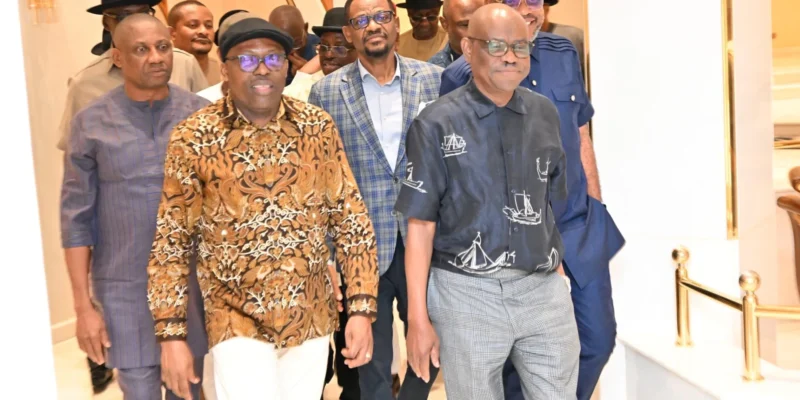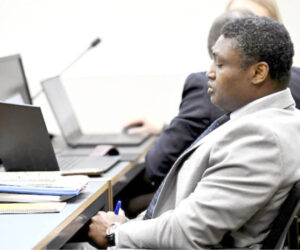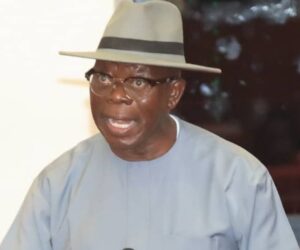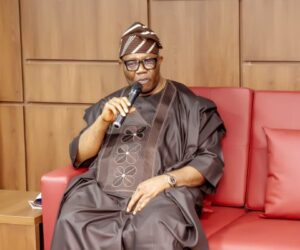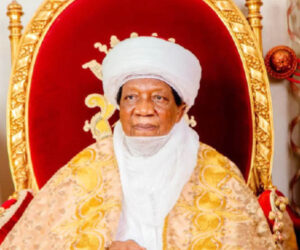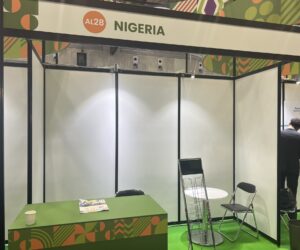Several politicians have fallen out with their benefactors since the 2023 general elections. Causes of the rifts have centred on allegations of shift in loyalty; lack of consultation in taking key decisions affecting the party or state; allegations of attempts to hijack party structures; not honouring initial agreements, appointments of aides and the alleged not granting access to resources.
Though such rifts are not new in Nigerian politics, the frequency and magnitude have quadrupled, Weekend Trust reports.
In the past, there were disagreements between politicians and their godfathers but it took some time for the rifts to deepen and blow open as such usually manifested during fresh rounds of elections when both tried to assert themselves. But in recent times, such altercations blow open months into the tenure of the benefactors.
SPONSOR AD
Decades ago, one of the most controversial falling out between two supposed very close associates was the rift between Chief Obafemi Awolowo and his successor as premier of Western region, Samuel Ladoke Akintola, during the 1st Republic.
The matter deteriorated leading to the declaration of a state of emergency in Western region.
Another was the falling out between late Abubakar Rimi and his mentor, Malam Aminu Kano, which split the Peoples Redemption Party (PRP) and led the former to contest the 1983 elections on the platform of another party but lost.
In the recent past, there were political parting of ways between former governor of Anambra State, Jim Nwobodo and his anointed candidate, Chimaroke Nnamani and Rabiu Musa Kwankwaso and Abdullahi Ganduje in Kano. In Benue, George Akume also fell out with Gabriel Suswam; Chief Victor Attah of Cross River also did not have it smooth with Godswill Akpabio who succeeded him; Rauf Aregbesola also fell out with Bola Tinubu who was instrumental to his becoming governor of Osun State; Rotimi Amaechi and Peter Odili in Rivers; Danjuma Goje and Ibrahim Dankwambo in Gombe; and Chimaroke Nnamani and Sullivan Chime, and many others.
Prof Ezekiel Adeyi of the University of Jos explained that the circumstances under which close political allies become foes was different in the past because politicians were loyal to ideologies and not to their benefactors.
“In the past, the godfathers were loyal to an ideology of the party in advancing democracy. And the godsons saw their godfathers as role models that they could follow and learn from. If there was any issue, they rushed to the fellow.
“But nowadays, the godson cannot talk because even the party nomination form was bought for him, campaign money was given to him, and they will impose who and who should work for him,” he said.
Latest crises
Weekend Trust reports that between 2023 and now, there are dozens of such altercations that analysts say point to the lack of patience by the current set of politicians in the country.
Some of these include the fallout between Benue State governor, Hyacinth Alia and his godfather, George Akume; between suspended Rivers State governor, Siminalayi Fubara and the FCT minister, Nyesom Wike; between Governor Uba Sani of Kaduna and Malam Nasir El-Rufai; the latter day parting of ways between President Tinubu and Abdullahi Ganduje; the split between former PDP presidential candidate Atiku Abubakar and his running mate Ifeanyi Okowa as well as the same Atiku and the Adamawa State governor, Ahmadu Fintiri, among others.
Our correspondents highlight these developments, their likely causes and how they’re being managed.
Atiku vs Fintiri
For years, former Vice President Atiku Abubakar, the Waziri Adamawa, dictated the rhythm of politics in his home state. His resources, networks, and national reach created leaders and sustained loyalists. But today, Governor Ahmadu Umaru Fintiri, widely regarded as one of the greatest beneficiaries of Atiku’s political structure, is increasingly accused of sidelining his benefactor and rebranding himself as Adamawa’s new power centre.
Governor Fintiri’s 2023 re-election campaign carried Atiku’s unmistakable fingerprints. Atiku’s nationwide network and financial clout helped to checkmate the APC’s fierce challenge, giving Fintiri a solid footing for a second term.
Yet, months after victory, Fintiri’s moves began to raise eyebrows. His administration’s reforms have been interpreted as a deliberate attempt to diminish Atiku’s revered title of Waziri Adamawa. Government denials did little to erase public suspicion that Fintiri was quietly cutting his godfather down to size.
Since then, the governor has consolidated control over the PDP structure in Adamawa, edging out Atiku loyalists and stamping his authority on party affairs. In political circles across Yola, whispers have grown louder: Atiku, once untouchable, is now being reduced to a spectator in the very arena he built.
Fintiri’s growing political independence has also been reinforced by his strategic alliances beyond Adamawa. His closeness to former Rivers State governor, now FCT Minister, Nyesom Wike — a long-standing rival of Atiku within the PDP — has sent strong signals of a realignment. By identifying with Wike’s faction, Fintiri not only distances himself from Atiku’s camp but also positions himself within a powerful counterweight to the Waziri’s influence at the national stage.
Analysts say what is happening in Adamawa goes beyond personal disloyalty. It is a power shift with national implications. Atiku, once the state’s supreme political commander, is now battling irrelevance in his own backyard. Fintiri, on the other hand, has seized the moment, tightening his grip on the PDP and projecting himself as the undisputed leader of Adamawa.
Speaking with our correspondent, Bello Jada, the Assistant National Organizing Secretary for the ADC and Zonal Organizing Secretary for the North East, contended that northern governors, particularly those from the North East, conspired to push Atiku out of the PDP to clear their own path for a presidential run.
“They looked at the reality and saw they were going nowhere,” Jada claimed. “Instead of wasting their time and resources, they have now resorted to a technical withdrawal, saying they have ceded the party’s presidency to the southern zone, thereby disqualifying themselves.”
Jada insisted that if the PDP were a viable party for a presidential victory, the governor of Adamawa would never have allowed the national leadership to take the presidency to the South.
In a strong rebuttal, the Adamawa State Commissioner of Information and Strategy, James Iliya, debunked the allegations, stating that the claim of Atiku being “forced out of the PDP” is unfounded.
“We have six governors in the North East, three from the PDP and three from the APC. Among the three PDP governors, those of Adamawa, Taraba, and Bauchi have no problems with Atiku,” Iliya said.
“As far as we are concerned, Atiku is our father, and we still respect him. One can testify that some of Atiku’s children, followers, and associates are part of the government, and nobody has victimized them,” he said.
He added that the Adamawa State government continues to support Atiku in all his endeavours.
“The support the government has always rendered to anything related to Atiku is still being provided. People are just making claims for the sake of it, but the reality is we still respect Atiku, and there is no problem among us. This is an unfounded allegation,” he stated.
Uba Sani and El-Rufai
The current Kaduna State Governor, Senator Uba Sani, and the former State governor, Nasir El-Rufai, have been friends and political associates for more than a decade.
The former governor, El-Rufai, appointed Uba Sani as Adviser on Intergovernmental Affairs and Political Adviser from 2015 to 2019. Governor Sani, according to observers, was among the closest allies of El-Rufai during the period he served as political adviser in the state.
It was gathered that because of trust and respect, El-Rufai ensured that Uba Sani got the senatorial ticket to represent Kaduna Central in 2019, shortly after his disagreement with the then senator representing Kaduna Central, Shehu Sani.
During his time at the Senate, Senator Uba Sani reciprocated the gesture by appointing El-Rufai’s son, Bello, as his legislative aide.
Again, because of Uba Sani’s relationship with the former governor, prior to the governorship elections, encouraged Bello El-Rufai to contest the House of Representatives seat for Kaduna North, which he did and won.
There were those who believed that Uba Sani single-handedly sponsored the campaigns to ensure that Bello won the election alongside himself, to further cement their relationship with the former governor, who was leaving office in 2023.
This gesture by Uba Sani further cemented their relationship beyond politics to family bond with the former governor, until recently when they parted ways due to political differences.
It would be recalled that a few months after Uba Sani resumed full leadership of the state, there were speculations that his relationship with the former governor had gotten sour, especially after the former governor was rejected as minister nominee by the Senate. It was learnt that El-Rufai nominated another of his allies, which the current state governor replaced with the current Minister of Environment.
Although both camps denied having misunderstandings, the situation changed when the State Assembly instituted a probe against El-Rufai’s administration alleging misappropriation of N423 billion in eight years.
The governor also blamed his predecessor’s administration for the state’s indebtedness, saying certain huge amount of money collected as loan is being removed from the state’s monthly allocation, making it difficult for it to pay salary and execute projects for the people.
Since then, the ex-governor’s allies, those who served as commissioners under his administration, were also remanded in correctional facilities for corruption allegations they denied and described as a political witch-hunt.
Even though Governor Uba Sani has maintained that their relationship is intact, as he never publicly criticised El-Rufai, the former governor, Nasir El-Rufai, recently described Senator Uba Sani as his mentee, not his friend.
He also once accused him of allowing himself to be instigated against him by the NSA’s office during an interview on national TV. In response, Senator Uba Sani said El-Rufai is not one of his mentors, mentioning late human rights activist, Gani Fawehinmi and President Bola Tinubu as his mentors and leaders.
As it stands now, the former governor has dumped the APC and joined the coalition movement working to remove the ruling party in 2027.
As the political tension continues to grow between Uba and El-Rufai’s camps, the former governor and other ADC members were recently attacked by suspected political thugs during a stakeholders’ meeting in Kaduna.
The former governor fingered the ruling party for the attack, saying he was disappointed that the government he helped to power is doing this to him. But the ruling party denied the allegation, saying they do not believe in thuggery and would never support it.
The recent exchange of words between El-Rufai and the state government has shown that there is bitter rivalry between them as the country moves toward the 2027 elections.
Kano: The many rifts
In Kano, there are many of such rifts including mainly former associates of former NNPP presidential candidate, Rabiu Musa Kwankwaso. One of such is with Baffa Bichi, who was removed from office in December 2024 amid reports of a strained relationship with his benefactor, Senator Kwankwaso, and Governor Abba Kabir Yusuf. He accused party leaders of betrayal.
Describing the NNPP leaders as “masters of betrayal”, Bichi had threatened to reveal what he described as “explosive evidence” against political figures in the state, accusing them of deceit and betrayal.
“I have documents, videos, and voice notes that will show everyone who they really are,” Bichi reportedly said.
The former SSG’s strained relationship with Governor Yusuf and Kwankwaso first came to light on October 14, 2024 when he was suspended from the NNPP.
Abdulmumin and Kwankwaso
Abdulmumin Jibrin Kofa, member representing Kiru/Bebeji Constituency in the House of Representatives, was suspended from the NNPP in September, 2025, after suggesting he might leave the party and voicing independence from party directives. His actions were perceived as defiance of his benefactor’s network.
Jibrin, a former Chairman of the House Committee on Appropriations, had declared during an interview with DCL Hausa on Thursday that his political future remained uncertain and that he could exit the NNPP.
“Nothing is impossible. I can remain in NNPP, I can go back to APC, I can join ADC or PDP or even PRP. I can go to wherever I like. When I’m ready, I will make my position known,” Jibrin said.
“Even the NNPP itself said it is open to negotiations with other parties, so it is not necessary that I follow the direction of the party. I am old enough to take a stand on what is best for me.”
Following these remarks, the Kano NNPP Chairman, Hashim Sulaiman Dungurawa, announced Jibrin’s suspension while addressing journalists on Saturday, accusing him of anti-party activities and neglecting his financial obligations to the party.
Kawu Sumaila and Kwankwaso
A former Senior Special Assistant to ex-President Muhammadu Buhari, Abdulrahman Kawu Sumaila, fell out with the NNPP and its leader, Senator Kwankwaso, after months of internal disagreements.
Sumaila, who played a key role in mobilising support for the NNPP in Kano South during the 2023 elections, is said to have become disillusioned with the party’s direction and alleged sidelining of his political base.
Sources close to the former lawmaker revealed that strained relations with Kwankwaso, his long-time political ally and benefactor, triggered the rift. He has since aligned with the APC platform ahead of the 2027 elections.
Political observers say Sumaila’s exit could affect NNPP’s grassroots strength in Kano South, where he commands a strong following.
Rurum and Kwankwaso
Former Speaker of the Kano State House of Assembly, Kabiru Alhassan Rurum and member representing Rano federal constituency, fell out with the NNPP following a breakdown in his relationship with the party’s national leader, Senator Kwankwaso.
Rurum, who defected from the APC to join the NNPP ahead of the 2023 elections, was among the influential politicians who helped strengthen the party’s base in Kano. However, insiders say he became increasingly dissatisfied over what he described as internal sidelining and lack of recognition of his political structure.
The rift has widened speculation that Rurum may be considering a return to the APC which he did as part of the alignments ahead of 2027.
Also, House of Representatives member representing Dala, Aliyu Sani Madakin Gini, has also parted ways with the NNPP after a fallout with the party’s leadership.
Madakin Gini, who has been a staunch supporter and member of the Kwankwasiyya movement and the NNPP, was regarded as one of the strong grassroots mobilisers for the party in Kano. However, sources said he became disenchanted with the manner the party was being run and felt sidelined despite his contributions.
The development adds to the growing list of prominent figures that have left or distanced themselves from the NNPP following disagreements with its national leader, Senator Kwankwaso.
Aregbesola/ Tinubu
The political fall-out between President Bola Tinubu and his one-time supporter and former Osun State governor, Rauf Aregbesola, is one that reverberated across the political space in South West.
Aregbesola, known as Tinubu’s political fixer, is one of the close allies who understood the president’s body language and political ideology.
Prof. Olusola Adeyeye, a former federal lawmaker and elder statesman in Osun State, painted a picture of the cordial relationship between the duo.
“They were so close. I was at a meeting in which Tinubu said: if you see me sleeping and you see Rauf (Aregbesola) coming with a dagger or a knife, don’t wake me up, Rauf will never injure me,” Adeyeye reportedly said.
He was commissioner for works and infrastructure in Lagos State under Tinubu from 1999 to 2007.
When Tinubu completed his tenure as Lagos governor, he was instrumental in Aregbesola securing the governorship ticket in Osun State, after a three-year legal battle that culminated in victory in 2010.
Crisis between the duo began after Aregbesola left the government. Aregbesola’s camp believed that Tinubu betrayed him during the bitter Osun APC crisis by siding with then-Governor Gboyega Oyetola ahead of the ill-fated 2022 re-election bid. Oyetola is reportedly Tinubu’s cousin.
Oyetola, who served as Aregbesola’s Chief of Staff for eight years, was ousted by the current Governor Ademola Adeleke of the PDP. There were rumours that Aregbesola quietly backed Adeleke to spite his former ally.
The feud saw Aregbesola leading his supporters, known as Omoluabi Progressives, out of the Osun State All Progressives Congress in January.
Besides Aregbesola was considered one of the strongmen in Lagos politics with his popularity and influence in Alimosho local government, the most populated LG in the state.
The former minister of interior was recently appointed as interim secretary of the African Democratic Congress (ADC). This placed him at the front seat in the battle to unseat Tinubu in 2027.
Adeyeye, who expressed sadness over the sour relationship between the two old friends, suggested that all efforts to bring them to the table had proven abortive.
Appearing on Channels Television’s Sunday Politics, the former lawmaker revealed that Tinubu trusted Aregbesola with his life while the former governor believed so much in him.
“It makes me sad that things are not working out between Aregbesola and Tinubu. [I’ve said it before that] if you want to get between Aregbesola and Tinubu you’ll fail.
“For Rauf, the entity in the universe bigger than Tinubu was God. So, I never knew what happened between them. But I have the feeling that what happened between them was Rauf thinking that Tinubu sided with his own brother against him.
“I tried my best to settle them. I tried my very best. Let me tell you, power can be a terrible thing. It is treacherous in Nigeria,” he said.
Alia vs Akume
In Benue State, Governor Hyacinth Alia’s rift with Secretary to the Government of the Federation (SGF), Senator George Akume, has become the most pronounced since the present political dispensation.
It’s no news that the later was the brain behind the emergence of Alia as a governor, using his leadership structure of the All Progressives Congress (APC) to midwife every process from the scratch to the top.
Our correspondent reports that trouble started barely weeks into office in May 2023 when Alia made sensitive appointments without deferring to Akume’s choices which included the Secretary to the State Government (SSG), Chief of Staff, and leadership of the House of Assembly.
Political watchers such as Micheal Odumu of the Peoples Democratic Party (PDP) in Otukpo Local Government Area of the state observed that early defiance was the first sign the priest-turned-politician would not be content with being a “godson.”
By July 2023, the cold war between both camps had split the All Progressives Congress in Benue, with supporters drawing battle lines.
The face-off started mainly because the governor solely made first few appointments without any consideration to Akume’s preferred choices; for instance, Akume had recommended Engr. Nick Wende – a former commissioner of environment in the state – for the position of SSG but Alia chose Professor Joseph Alkali for the job.
Akume also through the state APC forwarded list of Assembly leaders which had Jonathan Agbidye, the only ranking APC member in the House then was Majority Leader, but the former Speaker, Hyacinth Aondona Dajoh, chose the list submitted by the former Chief of Staff to the Governor, Paul Biam on behalf of the Alia, which was different from that of the party.
Alia actions against Akume also triggered the reconciliatory moves between the SGF and former Governor Samuel Ortom who were said to have met in Abuja. After the preliminary meeting, Weekend Trust gathered that Akume sent his ally, Crucial Abua to meet with Ortom in Makurdi.
Worried by the development, civil society groups such as the Benue Patriots had openly appealed to President Bola Tinubu to intervene before the feud further destabilises the state.
“This is about control of the soul of Benue,” the group’s president, Daniel Boor, told journalists at the time in Makurdi.
The rift no doubt, widened even as Alia’s critics accuse him of fighting everyone from Akume to the judiciary, his own party structures, cabinet members, and recently the legislature.
The drama peaked in August when the Benue Assembly saw a controversial change of leadership that many alleged was influenced by the governor, propelling the PDP to describe Alia’s style as “a theatre of perpetual fights,” warning that his confrontations could derail governance.
Yet, Alia’s aides deny the governor is autocratic.
“He has the utmost respect for the legislature and all arms of government,” his spokesman, Tersoo Kula, told our correspondent.
Kula had added that, “What is happening are normal democratic processes, not a warpath.”
Political analyst, Che Rex explained, however, that the pattern reflects a Nigerian trend.
He said, “Godfather politics is collapsing under the weight of ego and ambition. The moment godsons win power, they see little incentive to remain subservient. This creates instability but also opportunities for new power centres to emerge.”
Odumu, the PDP stalwart from Otukpo LGA, posited that, “For Alia, the long-term risk is that alienating a political heavyweight like Akume could complicate his bid for a second term. For Akume, losing control of his political base weakens his leverage as SGF and APC leader in the state.
“If the rift is not managed, both men could undo each other by 2027.”
Already, the APC in the state had yet to resolve their internal problems despite intervention of President Tinubu when he visited the state in June this year to commiserate with Benue people over the deadly invasion of Yelwata community in Guma LGA.
Undoubtedly, the cracks between the governor and his erstwhile godfather suggest that the 2023 elections may have birthed not just a new leadership but also a new cycle of political independence and confrontation in Benue.
But whether this new political independence will yield fruitful results as 2027 fast approaches remains the twist Benue people eagerly await.
Fubara and Wike
The suspended Governor Siminalayi Fubara and the Minister of Federal Capital Territory (FCT), Chief Nyesom Wike, have been close political allies and family friends for years, but the struggle for the control of political structures and other differences made once trusted allies to fall out in late 2023, few months after Fubara was sworn in as governor.
The Fubara and Wike relationship started before the latter was elected governor of the state in 2015. And shortly after assuming office, he did not waste time in bringing Fubara in as a Director of Finance and Accounts at the state’s government house, a gesture many political pundits in the state described as a display of trust, friendship and capability.
In 2020, Wike also appointed Fubara as the Permanent Secretary in the state civil service, and in 2020, Wike appointed him as the Accountant General of Rivers State, a position he served until May 2022, when he won the People’s Democratic Party (PDP) governorship primaries for the 2023 general elections through the support of Wike.
But power and politics have since caused misunderstanding between the two close allies.
Ehie Edison and Wike
Ehie Ogerenye Edison, former deputy speaker and factional speaker in the Rivers State House of Assembly, was once a close ally of Wike. He was twice elected as a legislator between 2015 and 2023.
After winning the 2023 election for third term in the Assembly, Wike also supported him to become the majority leader of the House, but both fell out in late 2023 when the Fubara and Wike misunderstanding started. He opted to support Fubara.
Weekend Trust learnt that he rejected the plot to sign the impeachment notice of Governor Fubara, a situation that led to the factionalisation of the house, before President Bola Tinubu intervened, which led to his resignation as the factional speaker.
However, he was appointed as the Chief of Staff to Governor Fubara after his resignation.
Wike and Odili
The FCT minister Wike, and former Governor Peter Odili, had a cordial relationship until 2023, when both fell out due to the misunderstanding between Wike and Fubara.
Wike had confirmed in several fora that it was Odili who made him the local government chairman of Obio Akpor LGA when he was a governor and even when political powers wanted to stop his re-election as the chairman, he said Odili stood by him and ensured he won the election.
Odili’s gesture actually signalled the beginning of political relevance for Wike, a gesture him (Wike) appreciated throughout his tenure as a governor, but since Odili opted to support Fubara amidst his understanding with the FCT Minister, Wike and Odili have fallen out.
Oshiomhole and others
When it comes to political allies turned foes, former Governor Adams Oshiomhole, now senator representing Edo North Senatorial District and his erstwhile political godson, former governor Godwin Obaseki, always come to mind.
Senator Adams Oshiomhole brought his erstwhile political godson Obaseki, from Lagos State into Edo politics after securing his victory at the Court of Appeal in 2008.
In the eight years of Oshiomhole’s administration, Obaseki held sway as chairman of the state economic team.
However, Oshiomhole and Obaseki alliance was put to test while the former was shopping for a successor, and against all odd, he hand-picked Obaseki.
Just like every other politician, Oshiomhole singlehandedly installed Obaseki as the APC candidate and eventually the governor.
But after two years in office as governor, the centre couldn’t hold and the harmonious relationship between two political allies turned frosty and they became sworn enemies.
The frosty relationship between them according to observers climaxed with the disqualification of Obaseki from contesting the 2019 governorship primary of the All Progressive Congress (APC) in the state.
Obaseki in revenge facilitated the suspension of Oshiomhole from the party in his (Oshiomhole) ward which eventually culminated in his removal as the national chairman of the APC.
Since then the duo have been working across purposes and engaging in war of wits.
Obaseki/Shaibu
Also, Obaseki and his deputy, Philip Shaibu who once referred to one another as older and younger brother became sworn enemies after the fight with Oshiomhole. The relationship between the duo became toxic after Shaibu indicated interest to succeed his principal after eight years in office.
Obaseki who had his preferred candidate in mind, according to pundits, drew the battle line with his once trusted ally.
Obaseki’s first strike against his former ally was to stop the monthly allocation to the office of the deputy governor, a move aimed at incapacitating and forcing him (Shaibu), to submission.
When that didn’t yield the desire result, Obaseki relocated the deputy governor’s office out of the government house, his staff withdrawn and also him barred from attending state government events
The crisis got to a head when Shaibu against all odds, threat and intimidation openly declared his intention to contest the 2024 governorship election.
This eventually culminated in his impeachment by the House of Assembly. Shaibu, in his own revenge, teamed up with Oshiomhole and other political foes of Obaseki to ensure that his preferred candidate Asue Ighodalo lost the election.
Contributions from Hope Abah, Makurdi; Amina Abdullahi, Yola; Bassey Willie, Port Harcourt; Salim Umar Ibrahim, Kano; Mohammed Ibrahim Yaba, Kaduna; Usman A. Bello, Benin; Abdullateef Aliyu and Peter Moses, Lagos.

